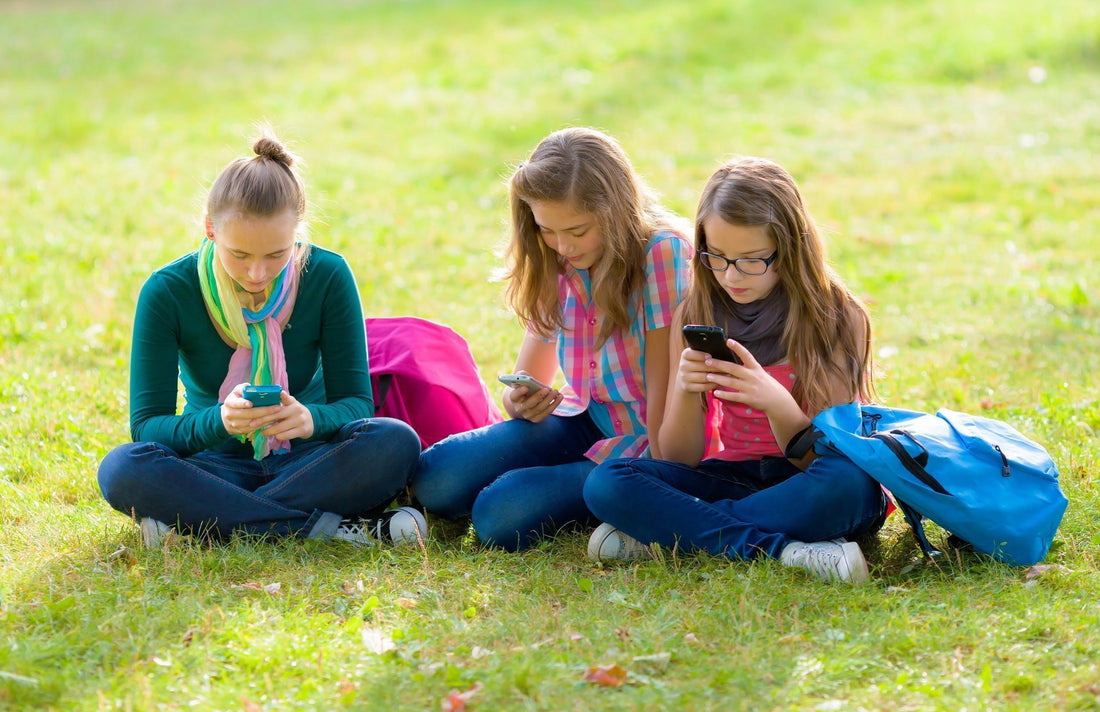It seems everyone is on social media these days, and there’s a reason for that. Social media platforms and apps provide conversation, opportunities for friendship across vast distances and a vital sense of community and belonging with like-minded people. But how do social media experiences affect teens? For lonely, anxious or shy teens, social media can provide a chance for low-stress interaction with others as well as an abundance of learning opportunities. However, there are dangers, including too much screen time, bullying and negative comparisons with others.
A Place of Friendship
The obvious positive effect of social media is the ability to meet new people and make new friends. Your anxious or shy teen may have a hard time breaking the ice with strangers or classmates, but on social media, it’s often possible to find others who share interests, quirks or struggles. This online community can provide support in difficult times or just a fun space to hang out and chat. It’s also a way to easily stay connected with family and friends, especially when those people move or already live far away.
A Place to Learn
The internet is a vast knowledge base, and most teens now follow the news on social media. The learning doesn’t stop with current events. Many school projects can be enhanced by working with classmates on social media. Collaborative efforts, such as writing and creating video content, can now be accomplished via social media. Opportunities for self-directed learning include millions of informational videos available on YouTube and similar video-sharing websites.
The Screen Time Balance
Social media use has potential negative side effects, and the top one may simply be the amount of time spent staring at a screen. Anxiety, depression and lowered self-esteem are all connected with excessive amounts of screen time. How much is too much? Studies suggest that up to an hour of screen time per day has no noticeable effect on happiness, so you don’t need to throw the tablet or smartphone out the window altogether. However, if your teen is spending more than an hour a day on social media, consider implementing some strategies to reduce screen time. You might notice an increase in relaxation, happiness and restful sleep when screen time is under control.
Healthy Versus Unhealthy Relationships
Just like face-to-face friendships, online friendships bring challenges, including the possibility of bullying and negative comparisons with others. The anonymity of some social media experiences can embolden cyberbullies and make it harder to stop their negative behavior. Bullying is a major concern on social media, with teens showing an increase in depression and anxiety when they are targeted. And then there is teens’ “self-bullying” — comparing themselves to others and seeing only the success of others and their own failures. These unhealthy comparisons can take a serious toll on teens’ self-esteem.
Encourage your teen to notice when they’re making comparisons to others. Are there certain apps, friends, or types of posts that trigger feelings of worry, hopelessness, or anxiety about measuring up? Talk with your teen about which online activities tend to produce envy and dissatisfaction. Replace them with different, positive online interactions. Encourage activities that center on learning, creating, and sharing — not bragging, shaming, belittling, or excessive attention to physical appearance. Emphasize to your teen that each of us has the power to choose influences that are healthy for us.
Attaining balanced usage of social media can be tricky. Restricting all access limits friendship and learning. At the same time, it’s vital to address the negative effects of being on social media for long periods of time every day. The online activities in which your teen engages can be an open and ongoing topic of discussion. Talk to your teen about the importance of avoiding bullying behaviors, standing up to bullying from others and not making excessive comparisons of herself with others. Remind your teen that the pictures you see on social media don’t tell a person’s whole story!


 Improve focus and clarity.
Improve focus and clarity.

